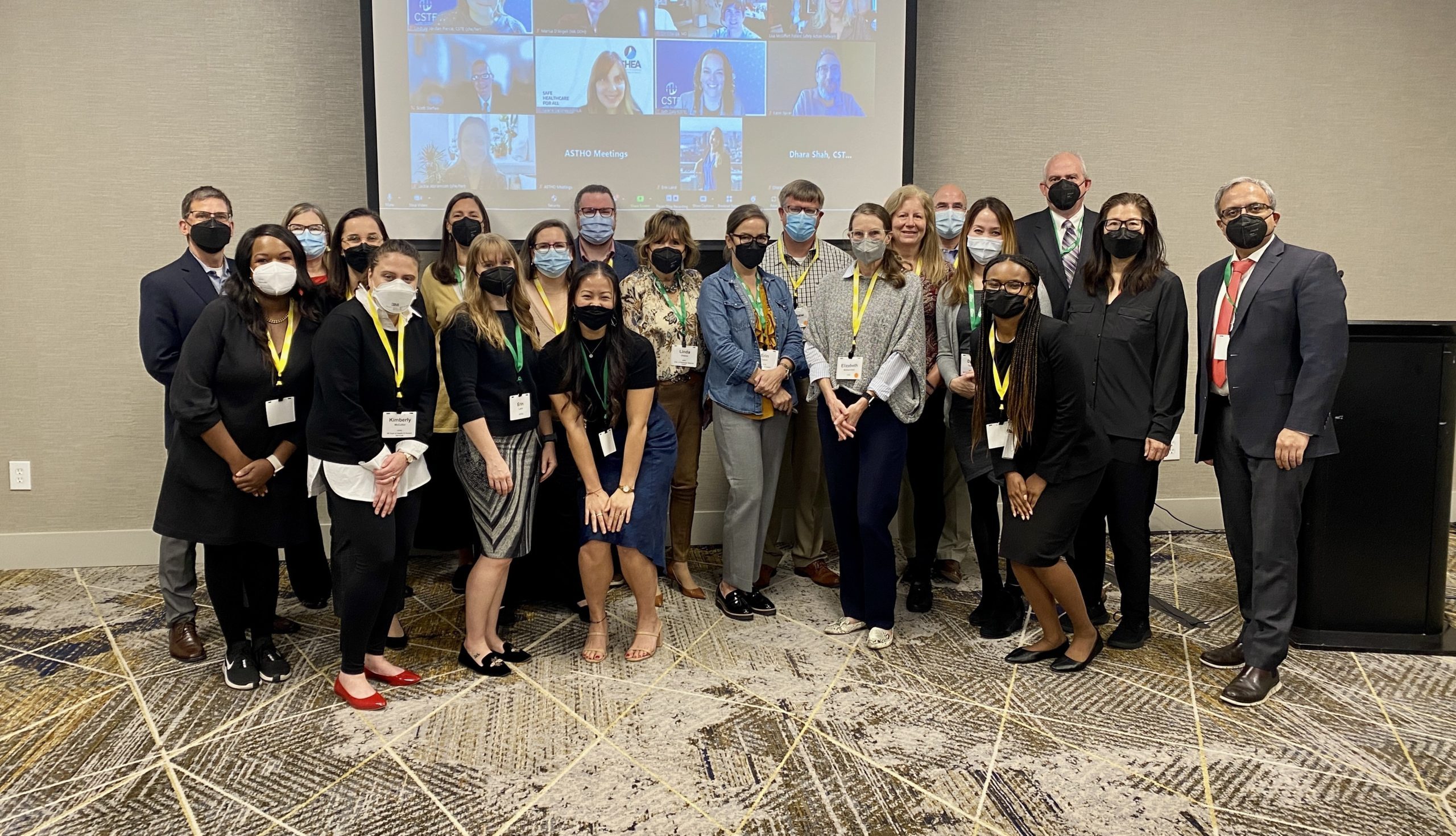In early November 2022, after almost three years of virtual meetings, council representatives and workgroup members convened in Atlanta, GA for the hybrid CORHA Fall Meeting. This two-day meeting consisted of robust discussions, informative presentations, and productive workgroup sessions aimed at improving healthcare-associated infections and antimicrobial resistance (HAI/AR) outbreak response. Meeting attendees discussed CORHA’s Strategic Map and reflected on their experiences leading the COVID-19 pandemic response, applying the successes and lessons learned from the response to CORHA’s goal of improving current and future HAI/AR outbreak response.

CORHA Fall 2022 Meeting Attendees
The COVID-19 Pandemic significantly tested and strained our healthcare systems and public health professionals while illuminating the many challenges of responding to the outbreak. Meeting attendees noted that waterborne pathogens such as legionella, fungal infections such as Candida auris and other common respiratory viruses were pathogens of concern that can similarly test our healthcare outbreak response capacities. CORHA has proven to be a vital resource for both healthcare and public health professionals, as well as their leadership. Members and partners have utilized the newly updated Reporting Thresholds and Outbreak Definitions for COVID-19 in Healthcare Settings document, as well as the CORHA Policy Workgroup’s Framework for Healthcare-Associated Infection Outbreak Notification document. CORHA is growing into a trusted resource by providing and packaging timely HAI/AR outbreak response guidance and recommendations. The Fall Meeting reinvigorated CORHA’s member organizations to not only update and refine existing products to reflect evolving needs, but also develop new resources and tools for future healthcare outbreaks.
Meeting discussions highlighted many opportunities to expand the reach and increase visibility of the Council’s work. First, member organization representatives discussed improving bi-directional communication and coordination between local, state, federal, and private sectors to promote and share the Council’s work. Additionally, attendees identified that CORHA would benefit from more strategic engagement with other organizations, such as hospital associations and licensing or accrediting agencies. Finally, members explored ideas such as developing one-pagers for CORHA products, establishing an ambassador program, and using social media as strategies for boosting engagement.
Discussions from the Fall Meeting will inform ongoing and future CORHA activities to provide the most up-to-date resources to build, standardize, and improve HAI/AR outbreak detection, reporting, investigation, and control. To stay informed on CORHA activities, please consider sharing relevant resources to your professional networks and communication channels. You are also encouraged to subscribe to the monthly CORHA Correspondence newsletter and submit feedback on CORHA products.